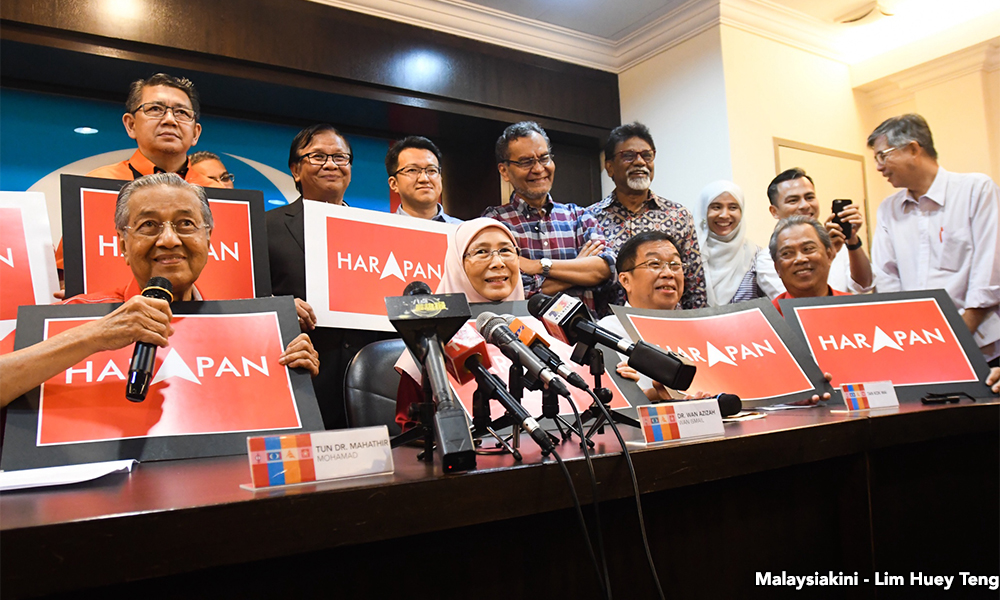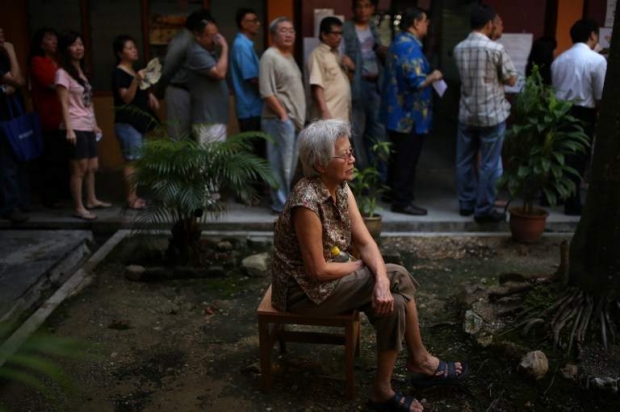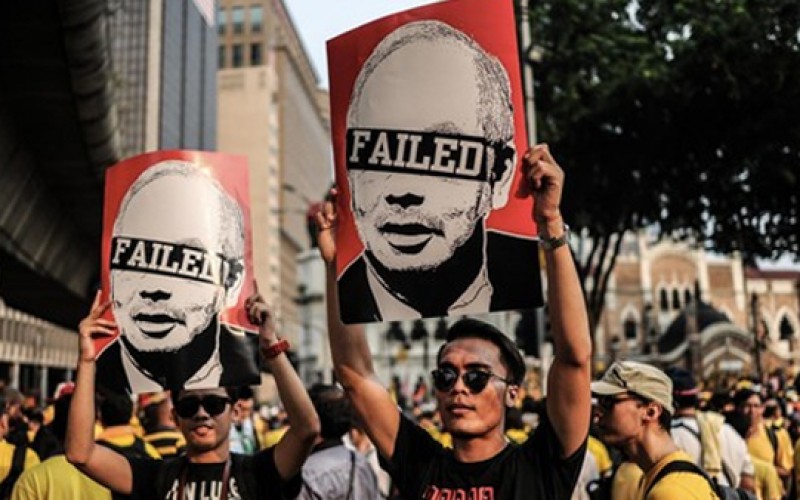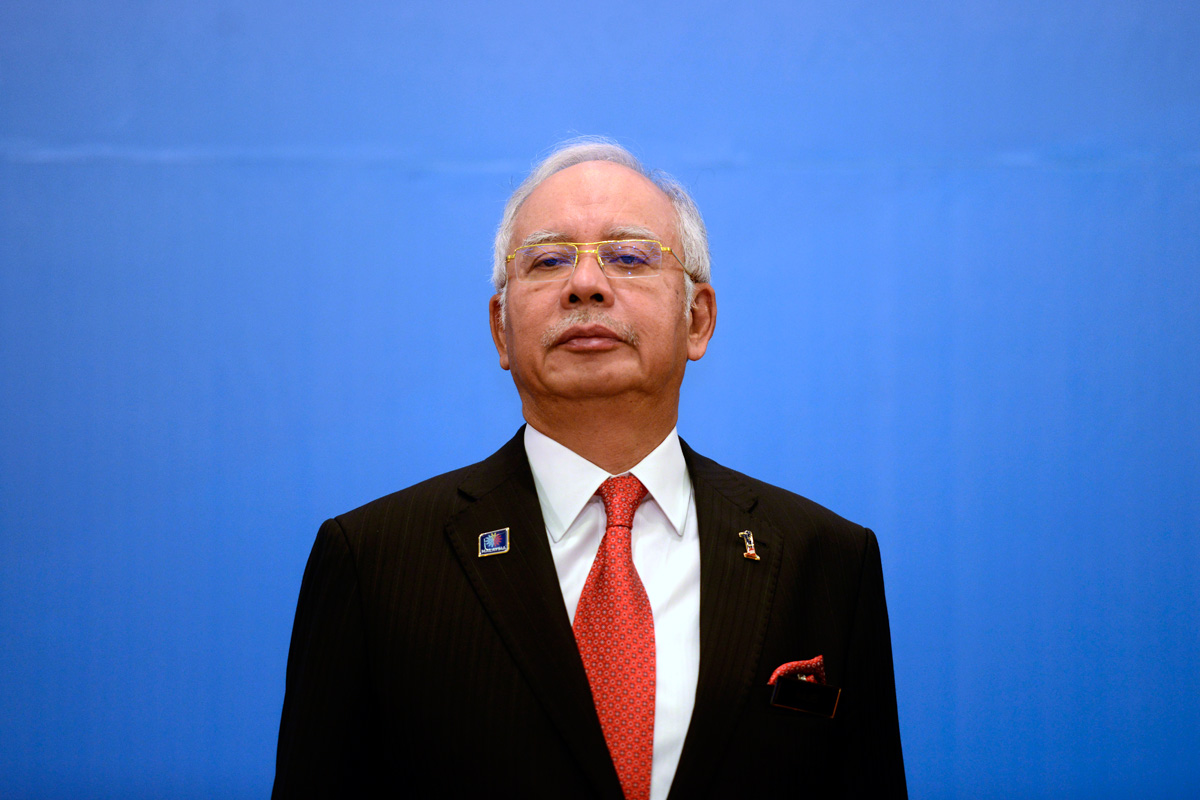What Does It Take For Pakatan Harapan To Win GE14 And What May Happen If They Do
We spoke to a parliamentary researcher and lawyer to shed some light on the technicalities and possibilities that may occur if a different party wins the next general election.
It has been more than four years since the 13th Malaysian General Election was held on 5 May 2013.
Barisan Nasional (BN) has emerged as the winning coalition in every single election held since the country achieved its independence in 1957.
Dubbed as one of the longest ruling coalitions in the democratic world, BN is made up of 13 parties including the three main race-based parties, United Malays National Organisation (UMNO), Malaysian Chinese Association (MCA), and the Malaysian Indian Congress (MIC).
One of the coalition's biggest victories to date was winning 198 out of the 219 seats in the Dewan Rakyat during the 11th General Election in 2004. The coalition was lead by former prime minister Tun Dato' Sri Haji Abdullah bin Haji Ahmad Badawi.
However, the 12th general election saw one of the worst election results in the history of the coalition. The 2008 'Tsunami' elections was also the first time since 1969 that BN did not win a two-thirds supermajority in the parliament.
That was the beginning of a new era for Malaysia. 2008 saw the opposition parties gaining popularity, sparked by Bersih's political rallies and more Malaysians started paying attention to politics.
Less than a year before the 2008 general elections, Bersih (Coalition for Clean and Fair Elections) held its first ever rally on 10 November 2007 which made several demands, including the usage of indelible election ink, abolition of postal votes, a thorough update on the registered electoral roll and a fair access to the mass media for all parties.
The rally brought on a renewed political interest among Malaysians and raised awareness on issues that aren't usually discussed on mainstream media.
The opposition parties came together under a coalition named, 'Pakatan Rakyat' (officially known as Pakatan Harapan now) soon after the 12th general election.
The Pan-Malaysian Islamic Party (PAS) is no longer part of the opposition coalition that is currently made up of the Democratic Action Party (DAP), National Trust Party (AMANAH), People's Justice Party (PKR), and the Malaysian United Indigenous Party (BERSATU). The coalition's chairperson is none other than Malaysia's longest-serving prime minister, Tun Dr Mahathir Mohamad. He used to be the leader of UMNO and lead Barisan Nasional to many of its election victories in the past, before resigning as the PM of Malaysia in 2003.
Now, about a decade later from when the political awakening began in Malaysia, Pakatan Harapan has emerged as BN's biggest rival, with some predicting that the coalition may even win the next general elections
Dr Mahathir with the key leaders of Pakatan Harapan at the press conference on 13 July.
Image via Lim Huey Teng/MalaysiakiniThe hopeful coalition recently released a set of plans it wants to achieve within the first 100 days of it taking over Putrajaya.
Here's the list of plans, as reported by Malaysiakini:
- Abolish the Goods and Services Tax (GST)
- Stabilise the petrol price
- Form a royal commission of inquiry (RCI) to investigate the 1MDB financial scandal
- Fight corruption
- Embark on a series of efforts to reduce Malaysians' financial burdens
- Start a reform process of the nation's key institutions
- Rehabilitate the Federal Land Development Authority (FELDA)
So, what does it take for Pakatan Harapan to win the 14th general election?
Firstly, here's a brief overview of how the Malaysian parliament and election system works:
Being a former British colony, Malaysia follows the Westminster system, which is a parliamentary system modelled after that of the United Kingdom system, as used in the Palace of Westminster - the location of the Parliament of the United Kingdom.
The elections exist at two levels - federal and state. This is in accordance with the bicameral system, a legislative body that has two branches. The Malaysian bicameral parliament consists of the upper house of the parliament, Dewan Negara (Senate) and the lower house of the parliament, Dewan Rakyat (House of Representatives).
At the federal level, voters elect the 222-member House of Representatives (Dewan Rakyat). The members are elected from single-member constituencies and each representative can serve multiple terms, with each term lasting for a maximum of five years.
At the state level, voters elect representatives to the Dewan Undangan Negeri (State Legislative Assembly) and the number of representatives varies between the different states in the country.
The upper house of the parliament, Dewan Negara, consists of 70 members, 26 of which are elected by the state legislative assemblies, while the remaining 44 are appointed by the Yang di-Pertuan Agong.
To form a government, a coalition or party has to win the majority of the 222-member Dewan Rakyat.
This means that they'll have to win at least 112 seats out of the 222 contested seats using the first-past-the-post system.
First-past-the-post is a voting method where voters indicate their preferred candidate on a ballot and the candidate who receives the most number of votes wins.
According to the Constitution of Malaysia, a general election must be held in the country at least once every five years. However, note that the Prime Minister has the power to request the Yang di-Pertuan Agong to dissolve the parliament at any time before this five-year period.
The most recent example of this would be the 2017 United Kingdom General Election which was held on 8 June. The general election was not due until 7 May 2020 but Prime Minister Theresa May called for a snap election earlier this year. A snap election refers to an election that is not necessary by the law or constitution but is usually called to decide on certain pressing issues or to capitalise on certain electoral opportunities.
What about the two-third majority?
A two-third majority is the majority required to pass constitutional amendments. Even if a party fails to make a two-third majority in the general elections, they can still form a government.
What if no single party wins enough seats to form a government?
When a general election results in no single political party winning an overall majority in the House of Commons, this is known as a situation of no overall control, or a 'hung parliament'.
For example, in the 2017 UK elections Theresa May's Conservative Party won 319 seats in the House of Commons. They were short of seven seats to form a majority government. The Labour Party won 261 seats, coming in as the second largest winning party in the elections.
May striked a deal with the Northern Ireland Democratic Unionist Party (DUP) to form a coalition government.
Back to Malaysia.
If we end up with a hung parliament, the parties can negotiate with one another to form a coalition government. In situations like these, parties would most often rely on jumping majorities.
The most crucial part would be both the coalition's' decision and agreement on who will be named as the prime minister. Once a decision is made, the person selected will be appointed as the Prime Minister of Malaysia.
This is based on 'Article 43: Appointment of the Prime Minister and the Cabinet', of the Federal Constitution which states that, "Yang di-Pertuan Agong shall first appoint as Perdana Menteri (Prime Minister) to preside over the Cabinet a member of the House of Representatives who in his judgment is likely to command the confidence of the majority of the members of that House".
After that, on the advice of the Prime Minister, the Yang di-Pertuan Agong will appoint other ministers from the members of either House of Parliament.
These decisions should be made as soon as possible, ideally no more than a week after the polling day.
Note that the civil service, important government policies, and services will remain the same. If need be, the new government will be briefed on all different aspects of governance by senior civil servants.
Technicalities aside, if a party other than Barisan Nasional wins any of the upcoming general elections, it would certainly go down in history.
Predicting the possibilities of what may happen after the official handover of power can prove to be a little difficult, as we do not have a precedent to refer to.
A woman sits as voters queue to cast their votes during the 13th General Election on 5 May 2013.
Image via AFP/The Malay Mail OnlineAll that said, we spoke to Chung Yi Fan, a parliamentary researcher, who shed some light on the matter. When asked on whether a historic change in power would affect the country economically, Yi Fan opined that a change in ruling power may do the nation good in terms of economy.
"I think overall in the mid to long term, our economy will be healthier and more resilient as may benefit from stronger checks and balances. Some overly ambitious huge spending projects may get reviewed or shelved and that may cause some politically well-connected businesses to suffer but in the long run, ordinary people will benefit from more prudent spending and more transparent governance.
"Malaysia is an open economy very much integrated to the global market. To a large extent our economy will do well if the global economic climate is good and vice versa. External factor is important too, but this is beyond our control," he said.
Will a change in power lead to political unrests?
Responding to this, Yi Fan gave credit to Malaysians, saying that most of the country's population are made up of peace-loving people.
"Political unrests are bad for businesses. Also, in Malaysia, politics and businesses are deeply intertwined. The power elites in business would want stability.
"As seen at a smaller scale in Penang and Selangor post-2008 elections, economic development and business opportunities in both states remained dynamic and vibrant. Life goes on for most of the business owners and ordinary working people, although the government has changed," opined Yi Fan.
Meanwhile, prominent lawyer Syahredzan Johan, did not dismiss the possibility of political unrests in the country should there be a shift in power after the next elections.
"There is a possibility of this happening, especially because we have not experienced a change of the Federal Government before. But, the likelihood is lower if there is clear and unequivocal rejection of Barisan Nasional. In any event, the police must be professional and ensure that public order is kept during this transition period," he told SAYS.
While opinions are brewing on the matter, Prime Minister Datuk Seri Najib Razak, said recently that Malaysians should not risk their future with a "party that has no direction"
"UMNO has been around for 60 years, and has brought the country to great heights. So why should we take risks.
"We have a good track record and we have a vision in TN50, and we know that UMNO has a clear direction in governing the country. This is all very clear, so why are we taking the risk with a party which has no direction?" asked Najib, as reported by The Malaysian Insight on 16 June.
Pakatan Harapan has yet to name a prime minister candidate from the coalition, as their de facto leader, former deputy minister Datuk Seri Anwar Ibrahim, is currently serving a five-year prison sentence after his sodomy conviction was upheld in 2015.
Also, in what came as a shock to many, Anwar released a statement saying that he has withdrawn as a prime minister candidate for Pakatan Harapan on 17 June.
"Given the call to focus all the attention on the general election, I choose not to offer myself as the candidate for prime minister. All this friction is tiring, at the end of the day the decision is in the hands of the people during the general election," he said, as reported by The Malaysian Insight.






